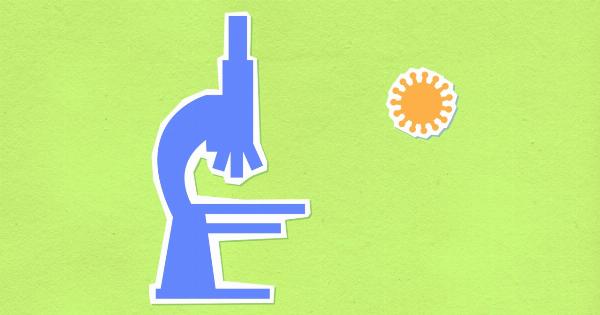While most insect bites are harmless and can be treated at home with simple remedies, there are times when seeking medical help becomes necessary.
Insect bites can range from mild discomfort to severe allergic reactions, and knowing when to seek medical assistance can prevent complications and ensure proper treatment. This article discusses the signs and symptoms that indicate when medical help should be sought for insect bites.
1. Severe Allergic Reactions
If you or someone you know experiences a severe allergic reaction after an insect bite, immediate medical attention is crucial. Symptoms of a severe allergic reaction, also known as anaphylaxis, include:.
- Difficulty breathing or tightness in the chest
- Swelling of the face, lips, tongue, or throat
- Rapid heartbeat or palpitations
- Dizziness or fainting
- Severe itching or hives
Anaphylaxis is a life-threatening condition that requires immediate treatment with epinephrine.
If you have a known allergy to insect bites or have experienced a severe allergic reaction in the past, it is important to carry an epinephrine auto-injector (such as an EpiPen) and seek medical help right away.
2. Multiple Bites
Getting bitten by multiple insects can lead to an increased risk of infection or a more severe reaction.
If you have been bitten by multiple insects, such as a swarm of mosquitoes or a group of fire ants, and begin experiencing symptoms beyond normal itching and mild swelling, it is advisable to seek medical assistance. This is particularly important if you notice any signs of an infection, such as increasing redness, warmth, pain, or pus.
3. Spider Bites
While most spider bites are harmless and only cause mild symptoms, some species can deliver venom that requires medical attention.
If you have been bitten by a spider and are unsure of the species, or if the bite is causing severe pain, spreading redness, or other concerning symptoms, it is best to consult a healthcare professional. A doctor can evaluate the bite and provide appropriate treatment or refer you to a specialist if necessary.
4. Tick Bites
Tick bites can transmit certain diseases, such as Lyme disease, Rocky Mountain spotted fever, or babesiosis.
If you have been bitten by a tick and develop symptoms such as a fever, headache, muscle or joint aches, or a characteristic rash, it is important to seek medical help. Early treatment of tick-borne illnesses is crucial in preventing complications.
5. Bites on Sensitive Areas
Bites on sensitive areas of the body, such as the face, eyes, lips, or genitals, require medical attention.
Insect bites in these areas can lead to more severe reactions or complications due to the higher concentration of blood vessels and delicate tissues.
6. Prolonged or Worsening Symptoms
If your symptoms from an insect bite persist for more than a few days, or if they are progressively worsening, it is advisable to seek medical help.
Prolonged or worsening symptoms may indicate an underlying infection or a more significant reaction that requires medical evaluation and treatment.
7. Persistent Pain or Swelling
While some pain and swelling are normal after an insect bite, persistent or severe pain and swelling can be a sign of an infection or a more serious allergic reaction.
If the pain or swelling does not improve with home remedies or over-the-counter medication, it is best to consult a healthcare professional for further evaluation.
8. Bites by Unidentified Insects
When you are unsure about the insect that bit you, it is wise to see a healthcare provider. Certain insects, such as venomous spiders or ticks, require specific treatments or preventative measures.
A healthcare professional can help identify the insect and recommend appropriate actions based on their knowledge and expertise.
9. Red Lines or Streaks
If you notice the development of red lines or streaks extending from the insect bite site, it may be an indication of an infection spreading through the lymphatic system.
This condition, known as lymphangitis, requires prompt medical attention to prevent further complications.
10. Pre-existing Medical Conditions or Medications
If you have pre-existing medical conditions, such as immune system disorders or chronic illnesses, or if you are taking medications that may interfere with your body’s response to insect bites, it is important to seek medical help for any insect bite. These conditions can increase the risk of complications and may require specialized treatment or monitoring.
Conclusion
In most cases, insect bites can be managed at home with basic first aid and over-the-counter remedies. However, certain signs and symptoms indicate the need for medical attention.
Severe allergic reactions, multiple bites, spider or tick bites, bites on sensitive areas, prolonged or worsening symptoms, persistent pain or swelling, bites by unidentified insects, the development of red lines or streaks, and pre-existing medical conditions or medications are all valid reasons to seek professional help. By recognizing these indicators and acting promptly, you can ensure proper treatment and prevent any potential complications.




























